Good morning. Please introduce yourself Jenni; what do you do and how?
Hi Roan. My name’s Jenni Pinnock, and I’m a composer and music teaching based in South Cambridgeshire. I mostly write contemporary classical music as well as teaching piano, theory, woodwind and composition, and running workshops and mentoring sessions for composers.
How did you become interested in composing?
When I first started playing instruments I loved improvising and making up my own melodies; this then developed to really enjoying composition at school from middle school onwards. My interest in it progressed more as I grew older, when I knew I wanted to focus on it more.
At what age did you start composing and what inspired you to do so?
As I mentioned above, I definitely wrote melodies and improvised a lot when I first started playing. I remember doing lots of group composition at middle school, and the first solo piece I remember writing and notating was a theme and variations based on Twinkle Twinkle Little Star, inspired by learning Mozart’s twelve variations on “Ah vous dirai-je, Maman” (very similar melody) on the piano.
How did you develop your composition skills and gain experience in this area?
After taking music at GCSE and A level, I studied for a degree in Music with a composition focus at Kingston University. I then studied for a Masters in Music Composition at Trinity Laban Conservatoire of Music and Dance. That gave me the academic grounding to be able to pursue a career in composition; experience wise I kept applying for opportunities, working on commissions and writing as much music as I could.
How did you get involved with the Reading Climate Change Festival?
Back in 2014 I was selected to receive Aldworth Philharmonic Orchestra’s Young Composer’s Award, which involved writing a new commission for the orchestra. The piece I wrote was Revolution, which involved looking at the ways climate change was affecting the world around us, and looking at data on atmospheric composition. Presentations and experiments on climate change formed part of the run up to the premiere in 2015.
This year, the Reading Climate Change Festival went online and contacted the APO to ask if they wanted to get involved. The perfect piece for them to discuss was Revolution – so Andrew Taylor (APO) and I had a discussion about the piece, climate change and the orchestra’s premiere.
What does a 'typical' day look like for you (or what might your day consist of)?
There is no typical day in my line of work! I tend to work while my children are at school, then spend the afternoon with them, returning to work for an hour or two in the evening. On a few days of the week there are teaching sessions; on others I’ll be composing, meeting with colleagues to collaborate or work on new projects or running workshops. Often my work extends to rehearsals or workshops in the evenings too and concerts during weekends, so every week can be different. I find I compose best in the mornings or evenings, so afternoons tend to be reserved for other things like practicing, recording, or admin work.
Is there anything about being a composer that challenges you?
There are always challenges when writing things, which is part of the joy of doing it! Writing for an instrument I don’t know as well is always a challenge, and learning about the instrument, how they’re played and how to write idiomatically for them is always interesting. Another challenge is the process of writing funding and project applications. Composers get their income in a variety of different ways, and one is to have their projects funded by arts organisations – writing those applications and planning the projects takes a lot of time!
Do you perform as well?
I have always performed a bit, though not as much nowadays. I used to do a lot of piano accompanying, and I frequently perform in a couple of local ensembles.
Do you have a favourite artist who inspired you and if you do, in what way?
I don’t have one particular favourite artist. I like lots of composers’ work, which changes regularly depending on what I’m working on. Recently I’ve been enjoying music by Ruth Gipps, Cecilia McDowall and Poulenc.
What else inspires your music?
My music is mostly inspired by nature and the world around us. I am currently finishing a suite of piano pieces with a weather theme and an orchestral work which is focused around the awakening of nature. Other themes that I keep coming back to are astronomy and birdsong.
I enjoyed listening to ‘Spring Sun’ in which you mentioned is part of your Weather series. What inspired you to write it and how did you go about composing it?
Spring Sun was written in early lockdown in 2020, inspired by the warm sun beating down on us during our walks. The main theme (the initial melody) came to me while walking, and the rest of the piece developed from that at the piano.
About the Weather series - what is it and will we be able to hear full recordings of it at some point?
The Weather series- Scattered Intervals- is a collection of 10 piano pieces each inspired by and related to the weather. The pieces themselves are finished and I’m currently tidying up the scores ready for publishing. Some have been recorded already, some only have snippets and some are yet to be recorded at all. The hope is to organise the recording of a full album at some point, but we’ll have to wait and see!
What do you think the future of composition is?
There will always be people writing new music. It will always be needed for TV and film, but I think it’s becoming a staple part of contemporary concert culture too.
Do you think that pop music is becoming more popular therefore shadowing out classical music?
I think there’s plenty of room in the world for pop music, classical music, and the many other genres of music there are too. If you listen to pop music, you frequently find it sampling classical music – and it wouldn’t be here if it weren’t for classical music in the first place!
What educational pathway did you choose to support your career?
After taking music A level, I decided to focus on composition for my music degree, and then took a Masters in composition.
Where do you see your career going from here?
Career wise, my aim is to continue writing new music, and to hope to have plenty of performers enjoy it over the years. I also want to continue holding workshops for young composers and to work with ensembles to create bespoke music.
I know that you play a variety of instruments; however which is your favourite to perform on?
This depends on the context! The piano is still my favourite instrument, and I love accompanying and playing in groups with it. I also really enjoy playing sax and oboe in orchestras and wind bands - I love hearing how all the parts merge together to create fantastic pieces.
When did you start learning piano and how?
I started playing the piano when I was about 8. I had a piano at home growing up, and I initially taught myself with some books we had, before progressing to lessons later on.
What inspired you to then take up woodwind instruments?
Before I learnt piano I taught myself recorder, and then had group lessons at school. At middle school recorders were allowed in the school orchestra, which was great and made me want to play an orchestral instrument! When I was 13 I took up oboe, and later began learning the alto saxophone.
On the topic of performance, do you have a favourite piece to play?
At the moment, my favourite piece to play on the piano is Poulenc’s Novelette in C – but it changes depending on what I’m working on, and what I’ve been playing!
What would your advice be to a young person interested in becoming a career musician/composer?
My advice would be to work on your craft – your area of musicianship – as much as you can. Listen to concerts, work with peers, practice, and play or write as much as you can. The most important things are to listen and to be creative.


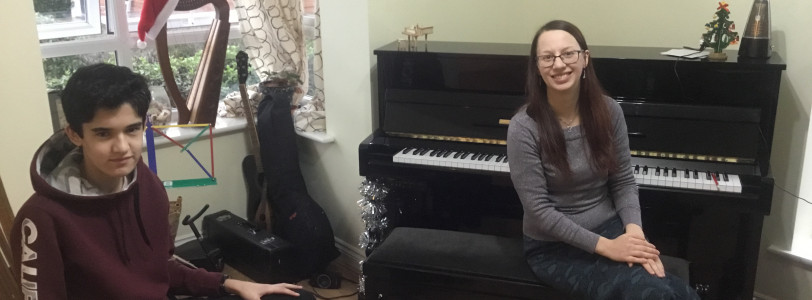
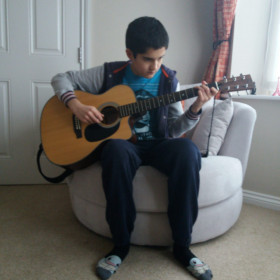

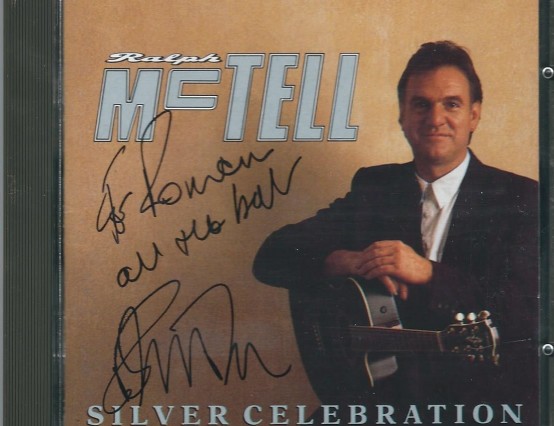
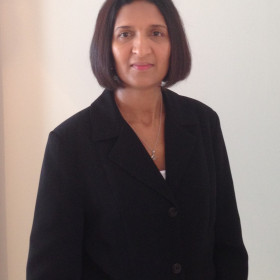




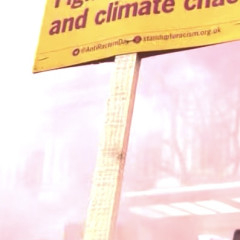
This is a fascinating interview with Jenni Pinnock, it’s amazing what talent lives around the corner! You sound very familiar with her works. A very very well written interview overall.